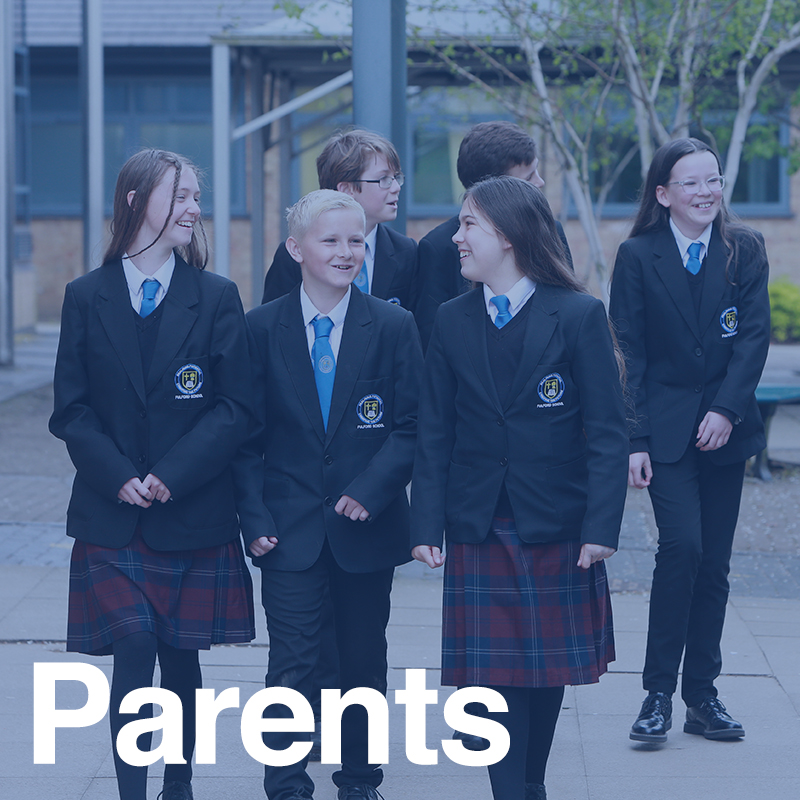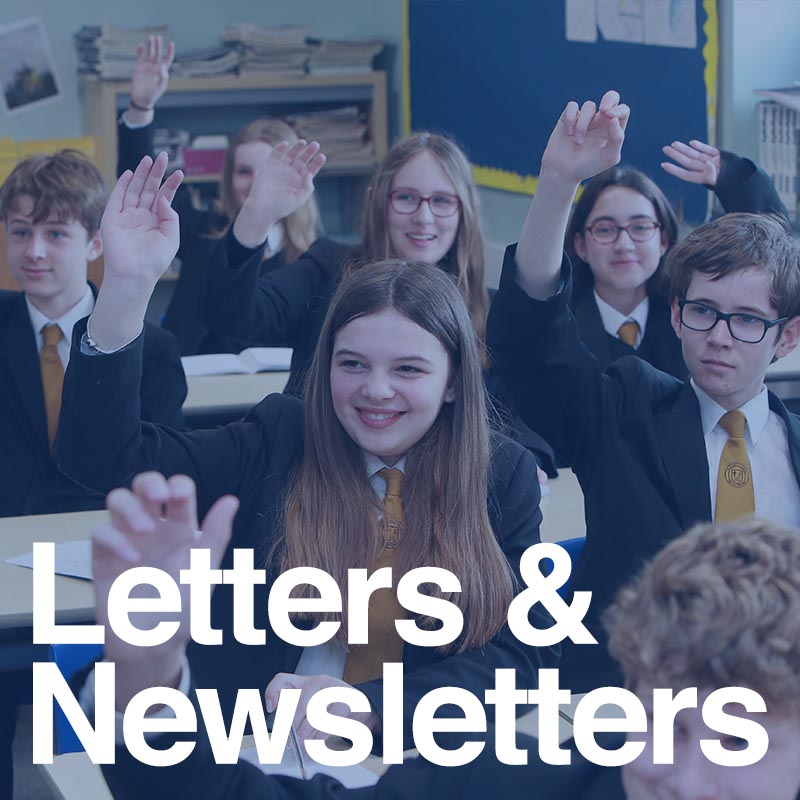Information
Curriculum Information
Fulford School seeks to develop the skills, values, talents, creativity and knowledge of all our community and we see the content, structure, organisation and coherence of the curriculum as the factor in developing our school ethos and the potential of all those involved with the school. Our curriculum, both within and outside the classroom, aims to provide high quality provision, enjoyable learning, excellence, opportunity and challenge for students of all abilities. It is also designed, along with our Careers Education and Information Advice and Guidance programme (CEIAG), to enable a broad range of progression routes and personalised support to meet the needs of our learners.
The assessment opportunities embedded in our curriculum design inform learners of their current progress, allow them to reflect on their learning and to identify what they need to do to improve. Our curriculum underpins all the work we do in school and is central to securing the highest standards of teaching and learning, student attainment and personal development. It aims to develop knowledge the knowledge, understanding, skills and personal qualities of our students so they are successful learners, confident individuals, tolerant and responsible citizens.
Personalised Learning
The structure of the curriculum is designed to ensure that all students are able to make excellent progress and aims to provide a range of personalised curricular pathways. We seek to develop a curriculum that meets the needs of our learners and that enhances student choice through partnership working, within the context of the efficient and effective use of the resources we have available. We place emphasis on developing literacy, numeracy and the key learning attributes of resilience, independence, team work, creativity and reflection in order to maximise the life chances of all our students. One of the key purposes of our support for students with special needs is to ensure accessibility to the curriculum for all students as far as is practicable.
Our curriculum reflects local and national need, promotes global awareness and sustainability, and seeks to raise aspirations by providing very strong and visible progression routes into higher education, further education, apprenticeship training and employment. In order to optimise our curriculum offer we work in partnership with other institutions and organisations seeking to further develop opportunities as appropriate.
Able and Talented Students
Within class approaches are central to the provision for able and talented students. Teachers at Fulford have been trained in and look to provide opportunities for:
- Challenge within their subject.
- Differentiation in their approach to planning and where attainment exceeds expected levels drawing on materials and strategies from later or higher levels of study.
- Differentiated homework for able and talented when applicable.
- All students to express their particular strength and talent.
- The use of multiple intelligences and learning styles in lessons.
The Virtual Learning Environment (VLE) is also used widely to develop students’ capacity to work independently across the curriculum.
We also provide a range of enrichment and extra-curricular activities for able and talented students within school.
Curriculum Entitlement
Our curriculum is designed to ensure that students:
- Have access to a broad and balanced curriculum which supports the concept of equal value and opportunities and that promotes personal development and meets individual needs
- Experience enjoyment in learning and achieve a sense of purpose and fulfilment in the tasks and activities presented to them
- Enjoy a curriculum and learning environment which nurtures self-respect, self-confidence and the ability to respect other people’s points of view
- Experience school as a caring supportive community where there is equal opportunity for all, a real drive to develop individual potential and where the learning partnership of children, parents and teachers is developed and valued
- Experience a range of teaching and learning styles in a range of learning environments
- Have access to individual personal, social, careers and vocational guidance to ensure that education is seen to develop the ‘whole person’
- Are involved in the assessment and review of their own work, progress and resulting target setting
- Understand their role in society and the economy and can act as active citizens in the local, national and global community
Structure and Organisation of the Curriculum
Key Stage Three (Years 7, 8 and 9)
The Key Stage 3 curriculum comprises the following subjects:
English; Maths; Science; PE; RE; History; Geography; Computing; Music; Drama; Modern Foreign Languages (Spanish); Personal Development; Art; Design Technology.
A number of students in each year group also study French alongside Spanish.
Additional literacy and numeracy classes are available within the curriculum for those students where this is an appropriate pathway.
Key Stage Four (Years 10 and 11)
The core curriculum comprises:
English; Maths; Science; PE; RE; Personal Development.
In addition to this, students are offered a choice of a range of level 1 and 2 courses including GCSEs and other work-related learning options. Full details are in the annually updated Key Stage Four options booklet. All students are entered for either short or full course GCSE RE.
Key Stage Five (Years 12 and 13)
We offer a wide range of A level and Level 3 courses. Full details are in the annually updated Sixth Form prospectus.
Collective Worship
At Fulford School, we provide opportunities for students to:
- Reflect on values that are of a broadly Christian nature and on their own beliefs
- Develop a community spirit and shared set of values
- Consider moral and spiritual issues
We provide collective worship for registered students (apart from those withdrawn by parents) through assemblies and through reflection during tutor time. Alternative provision is arranged for those students who are withdrawn from these planned activities.
Collective worship, whether in assembly or tutor time will:
- Be designed to promote moral values, social awareness and personal reflection
- Be part of a planned tutorial programme
- Reinforce the values of the whole community
- Involve students and the wider community
- Cover a range of elements and issues
- Celebrate success
Monitoring, evaluation and review
The quality and effectiveness of the curriculum is monitored and evaluated through regular reports to the Governors’ Learning and Achievement Committee and through a rigorous programme of whole school self-evaluation.
For further information about individual subjects, please click on the relevant link within the ‘Department List’ tab or for further general information about the curriculum, please contact Mr A Rosie, Deputy Headteacher (Curriculum and Achievement).
Year 7 | Year 8 | Year 9 |
English | English | English |
Mathematics | Mathematics | Mathematics |
Combined Science | Combined Science | Combined Science |
Art | Art | Art |
Computing | Computing | Computing |
Design Technology | Design Technology | Design Technology |
Drama | Drama | Drama |
French* | French* | French* |
Geography | Geography | Geography |
History | History | History |
Music | Music | Music |
Physical Education | Physical Education | Physical Education |
Personal Development | Personal Development | Personal Development |
Religious Studies | Religious Studies | Religious Studies |
Spanish | Spanish | Spanish |
* French is available as an additional subject alongside Spanish to a small number of students in each year group.
Assessment at Key Stage 3
Key Stage 3 students are assessed in each subject using one of 5 descriptors. The criteria for each descriptor are defined by each department and the expectation is that these enable students and parents to recognise a tangible sense of progress over the course of the Key Stage.
Key Stage 4 Learning Programme All students study the following subjects:
- English
- Mathematics
- Science
- RE
- Physical Education
- Personal Development
In addition students must study at least two of the following English Baccalaureate subjects:
| French | Spanish |
| History | Geography |
Up to two additional choices are made from the following subjects:
| Art & Design | D&T: Product Design |
| Business Studies | D&T: Textile Technology |
| Construction* | Foundation Learning Programme including Workskills* |
| Drama | GCSE Physical Education |
| Enterprise Business* | Music |
| Food Preparation and Nutrition | Interactive Media* |
| Computer Science | Engineering |
| Health and Social Care* | Travel and Tourism* |
| Hospitality and Catering* |
* indicates a Level 2 Vocational Course
In addition to the option to study Computer Science or Interactive Media, all students are taught the compulsory elements of the Computing National Curriculum at key stage 4 through a form time programme, Alternative Curriculum Day activities and through skills which are developed across the curriculum.
Parents have the right to request that their children be exempted from attending assemblies of a religious nature and RE lessons on the grounds of religious belief. Parents also have a right to request the withdrawal of their child from aspects of Sex Education providing that they do not form part of the National Curriculum. Any comments or concerns parents may wish to raise relating to the implementation of the National Curriculum or the provision of Religious Education should be directed to the school in the first instance.
Key Stage 5 Learning Programme
Applied Science (Level 3 Extended Certificate) | Further Mathematics |
Art & Design | Geography |
Biology | Government & Politics |
Business | History |
Chemistry | Mathematics |
Computer Science | Music |
Core Maths (Level 3) | Philosophy |
Design Technology (3D Product Design) | Photography |
Design Technology (Textiles) | Physical Education |
Drama & Theatre Studies | Physics |
Economics | Psychology |
English Language | Religious Studies |
English Literature | Sociology |
EPQ | Spanish |
Film Studies | Sport (Level 3 Extended Certificate) |
French |
|
All subjects are offered as A Level unless stated otherwise. Additionally, resit GCSE classes in English and Maths are run for those students who do not achieve grade 5 or above in either subject.
The study programme followed by our Post 16 students comprises:
- All students take 3 or, by exception, 4 substantial academic or applied courses which provide stretch and prepare them for education at the next level or employment.
- Students have 9 taught hours per course per fortnight.
- Students who have achieved below a grade 4 in GCSE English or Maths resit the course. Students who achieved a grade 4 in either subject are given the option to re-sit the course.
- Form Periods – a range of non-qualification activities take place during form periods with the aim of developing character, skills, attitudes and confidence. Our CEIAG programme also operates during form periods.
- Tutorials – all students have a fortnightly tutorial with their Sixth Form Tutor. This is central to our pastoral and academic support system.
- Enrichment – all students have access to our enrichment programme which includes qualification and non-qualification activities.
- Work Experience – all students undertake a 1-week work experience placement during the summer term of Year 12.
- Study Periods – all students have timetabled study periods where they are expected to undertake homework or revision activities.
- All students follow a full programme of 600 Planned Learning Hours per year.
For further information on Key Stage 5 provision, please see the Sixth Form area of the website.




